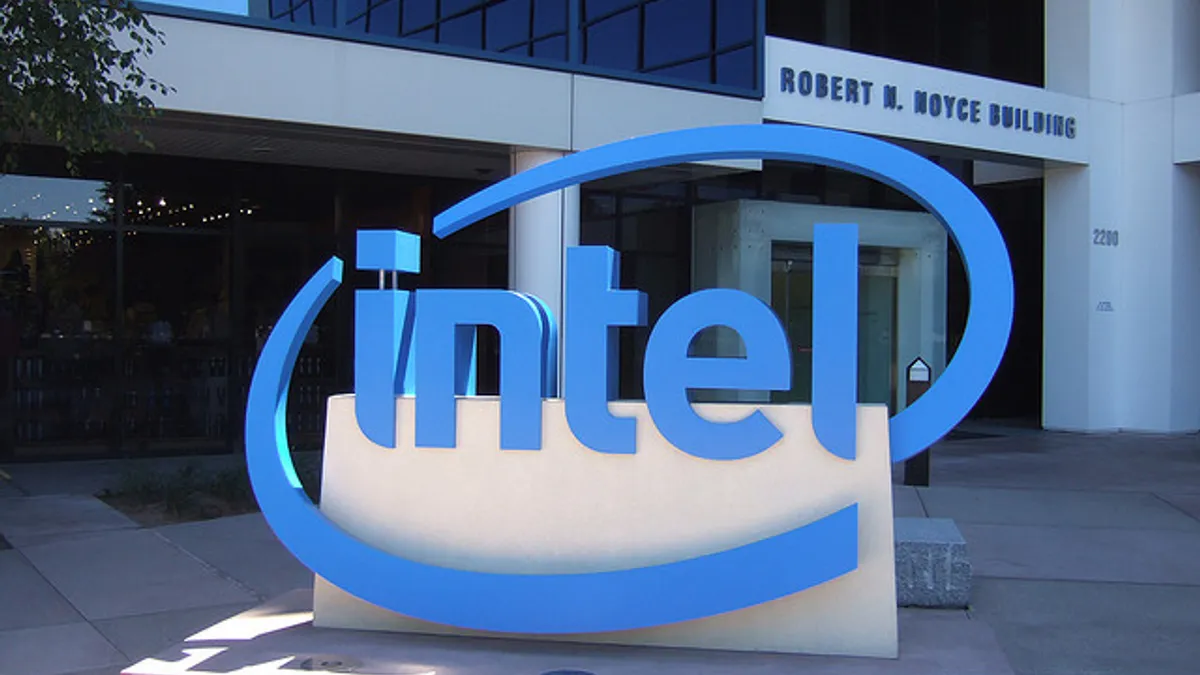Dive Brief:
- Intel decreased its number of supplier labor violations by 60% last year, according to data in the tech company's Corporate Responsibility Report.
- Although the number of violations related to forced and bonded labor were 50 in 2017 (down from 126 in 2016), the figure is still higher than the 23 violations in 2015. Part of that change resulted from new assessments of risks, resulting in higher findings.
- Intel said industry collaboration is key to working with suppliers and minimizing forced or bonded labor conditions.
Dive Insight:
Intel’s acknowledgement of forced and bonded labor in its supply chain is both welcomed and chilling. If a company of this scope and reputation is tackling this issue head on, it certainly says a lot about the social responsibility of the company and their expectations of suppliers.
Today’s supply chain manager has the power, and the responsibility, to bring positive human rights support to the extended supply chain. It is more than good business; it’s an obligation.
As a one-time procurement manager for a prime supplier of capital equipment to Intel, their progressive understanding of the importance of members of their supply chain was evident. Intel was a company that was both stern and supportive to members of their supply chain. They had a complete understanding, albeit confidence, of their needs and requirements.
Intel’s actions actually resulted in having suppliers returning approximately $13 million in fees to their workers.

Supply Chain Dive
In fact, our procurement department adopted many of their processes and procedures, and I was not shy in identifying them as a reason to make my suppliers perform better. They expected their vision and requirements to flow throughout the supply chain.
Intel’s leadership in the social supply chain gives credibility and credence to the importance of the role of supply chain professionals, by actively seeking out and demanding that suppliers treat employees lawfully and respectfully. The blinders of "low cost at all cost" must come off when making sourcing decisions. If not, supply chain managers are complicit in maintaining the shadowy supply chain status quo.
Many talk about social responsibility in the supply chain and may even have a PowerPoint slide making sure that everyone knows about it. But that slide is often more intent than action. Intel’s actions actually resulted in having suppliers returning approximately $13 million in fees to their workers. While something tells me this is just the tip of the iceberg, it demonstrates action.
Today’s supply chain manager has the power, and the responsibility, to bring positive human rights support to the extended supply chain.

Supply Chain Dive
Some may say that Intel has the size and brand necessary to wield their power in the supply chain to address social needs. But to your suppliers, you can be the equivalent of an Intel, an important customer that is actively addressing social issues in the supply chain. It’s never too early to have the conversations about all kinds of social issues supply chain. In fact, show them Intel’s efforts and success on human rights, and perhaps model it.
Yet, even Intel realizes that they can only go so far. "We recognize that many challenges exist in combating this issue, in particular, lack of full visibility into our multi-tier supply chain, and difficulty in tracing the multiple levels of labor agents who source workers," Intel said in its report.
Supply chain management has never been more in the limelight these days. Use that bully pulpit to enact leadership with your suppliers around human rights and other abuses in the supply chain. With many of our social causes these days, we hear the term: "which side of history are you on?" Supply chain leaders need to be on the right side of history of this issue. People you don’t even know are depending on you. Use your power.













